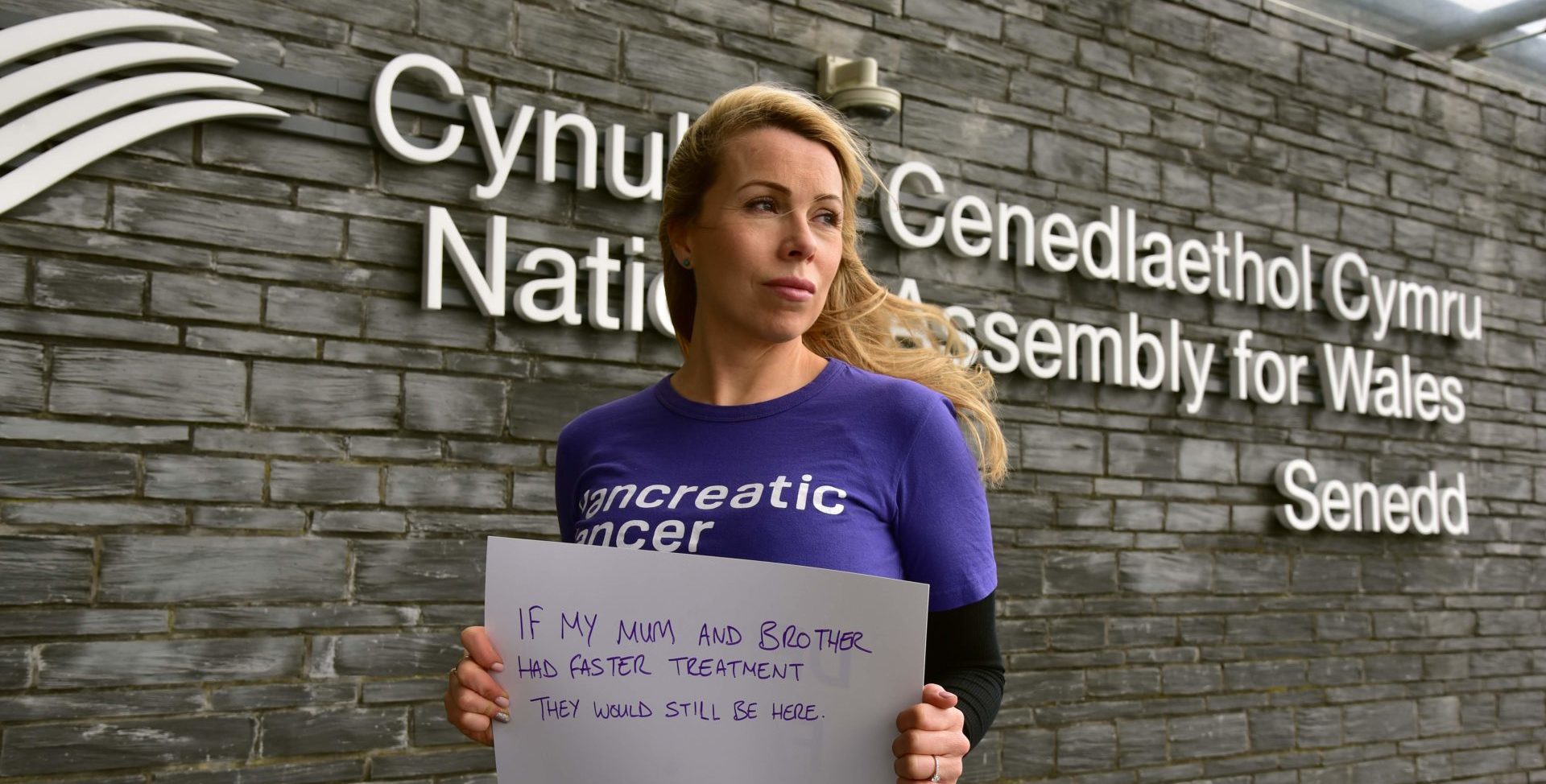

Welsh Government publish new Cancer Improvement Plan for NHS Wales
Today, the Welsh Government and Wales Cancer Network have launched a new Cancer Improvement Plan for NHS Wales, which sets out the issues, actions and timeframes for improving cancer services in Wales over the next three years.
Anna Jewell, our Director of Support, Research and Influencing, said:
“We welcome this plan, as a national approach to improving outcomes for people with cancer in Wales is desperately needed. As a member of the Wales Cancer Alliance, a coalition of 28 cancer charities in Wales, we were pleased to have the opportunity to contribute to it. The alliance also engaged with over 160 people who have been affected by cancer in Wales as part of the plan’s development.
It is positive to see the plan acknowledge the seriousness of the challenges facing those diagnosed with less survivable cancers, including pancreatic, lung, liver, brain, oesophageal, and stomach. It also recognises that outcomes for these cancers have not improved for decades and are much poorer than for other cancers.
Actions such as developing prehabilitation services and ensuring every Health Board has a Rapid Diagnosis Clinic to see patients with vague and non-specific symptoms have the potential to improve outcomes and experiences of people with these cancers.
We see time after time that the less survivable cancers need targeted action – without this, they will stay as deadly as they are today.
“However, we’re very concerned about the lack of detail around how pancreatic cancer and the other less survivable cancers will be tackled in Wales. We see time after time that these cancers need a tailored approach – they are a unique challenge, and without targeted action, they will stay as deadly as they are today. The current 62 day treatment standard remains nowhere near fast enough for people with pancreatic cancer, where half of people die within 90 days of receiving their diagnosis. The overall lack of ambition within the plan threatens to leave Wales trailing far behind when it comes to survival outcomes.
Ultimately, we will need more than what this plan promises to truly see change for pancreatic cancer in Wales. In the meantime, we’ll be watching its implementation closely and taking every opportunity we can to speak up and demand better for people with the deadliest common cancer.”

